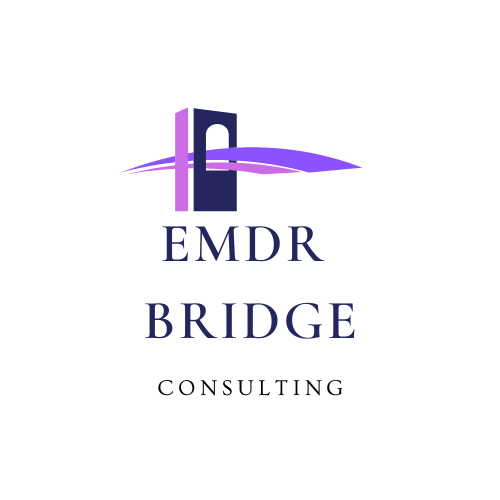EMDR Phase Four Follies: Have a plan for anything!
EMDR therapists often have anxiety about entering Phase Four, whether it’s fear of harm or not knowing what to do next. This workshop introduces a novel, easy to understand approach to Phase Four. Topics include assessing client readiness, choosing better targets, managing blocked processing, taking the fear out of abreactions, and using cognitive interweaves effectively. Come join me for this fun, interactive workshop where you will boost your confidence and leave with a plan for anything! Less...
Learning Objectives
- Name five assessment categories to determine client readiness for Phase 4.
- List three guidelines to choose better targets in Phase 3.
- Describe the four categories of intervention during Phase 4.
- Identify when a client is looping or is experiencing blocked processing in Phase 4 and apply appropriate strategies.
- Describe three examples of cognitive interweaves and identify when it is appropriate to use them.
Learning Levels
- Must have completed an EMDRIA-Approved EMDR Basic Training
Friday, February 24, 2023
09:00 AM PST - 12:00 PM PST
Register for this WebinarAbout the speaker
Agenda
Please note, all times listed below are in Pacific Standard Time (PST).
9:00-9:45 Assessing Client Readiness for Phase 4
- Identifying common fears in beginning Phase 4
- Dispelling myths and paradigm shifts
- The six categories in assessing client readiness
9:45-10:15 Choosing Better Targets for Better Phase 4 Outcomes
- Trauma-informed Top 10 Worst and Best list
- Live demonstration with audience member
10:15-11:00 Introduction of the “Only Four Things” to do in Phase 4
- Client reprocessing without intervention
- First-line strategies for looping, blocked or stuck processing
- Dancing with Abreactions
11:00-11:30 Cognitive Interweaves
- Understanding what they are and when to use them
- Develop a list of commonly used and effective cognitive interweaves
11:30-12:00 Managing Therapist Anxiety
- Why it’s necessary
- Simple methods to use during client sessions
CE Information - Earn 3 CE Credit Hours
CE Approvals
American Psychological Association
Eye Movement Desensitization and Reprocessing International Association
CE Process Info
Each professional is responsible for the individual requirements as stipulated by his/her licensing agency. Please contact your individual licensing board/regulatory agency to review continuing education requirements for licensure renewal. Please note: You must attend "live" (in real-time) to earn CE credits.
Before the event, you will receive an email from CE-Go with access to the virtual event. After the event, you will receive access to your evaluation and continuing education certificate via a personalized "attendee dashboard" link, hosted on the CE-Go website. This link and access to the virtual event will be sent to the email account you used to register for the event.
Upon accessing the CE-Go "attendee dashboard", you will be able to:
- Complete evaluation forms for the event
- Download your continuing education certificate in a PDF format
If you have any questions or concerns regarding the CE-Go platform, please contact CE-Go at 888-498-5578 or by email at support@ce-go.com Please Note: Emails for this event will come from "support@ce-go.com".
If you have any continuing education related questions, please contact your event organizer.
Please make sure to check your spam/junk folder in case those emails get "stuck". We'd also suggest "Allowlisting" support@ce-go.com. This tells your email client that you know this sender and trust them, which will keep emails from this contact at the top of your inbox and out of the junk folder.
Disclosure
DISCLOSURE OF RELEVANT FINANCIAL RELATIONSHIPSCE Learning Systems, LLC is an independent provider of continuing medical education. CE Learning Systems, LLC has no proprietary or financial interest in medical or healthcare products over which the FDA (USA) or EMA (EU) has regulatory authority.
In accordance with our disclosure policies, CE Learning Systems, LLC is committed to ensuring balance, independence, objectivity, and scientific rigor for all accredited continuing education. These policies include assigning relevance to, and mitigating, all perceived or real conflicts of interest between any individual with control over the content and any ineligible company (commercial interest).
Any individual with control over accredited content, including planner, faculty, and reviewer, is required to globally disclose:
1. Individual relationship(s) or lack thereof, and its nature, with any/all ineligible company, and;
2. any investigational, off-label, or non-FDA approved content or discussion
CE Learning Systems, LLC has reviewed these disclosures, assigned relevance based on the relationship and scope of content, and identified those with the potential to compromise the goals and educational integrity of the education. Relevant relationships, or lack thereof, are shared with the learner.
Education has been independently peer-reviewed to validate content, mitigate identified conflicts of interest, and ensure:
1. All recommendations involving clinical medicine is based on evidence that is accepted within the medical profession as adequate justification for their indications and contraindications in the care of patients.
2. All scientific research referred to, reported, or used in accredited continuing education in support or justification of a patient care recommendation conforms to the generally accepted standards of experimental design, data collection, and analysis.
3. Content is appropriate, fair and balanced, unbiased, referenced, and non-promotional.
FACULTY
The faculty have reported the following: There are no relevant disclosures.
PLANNERS
The planners have reported the following: There are no relevant disclosures.

